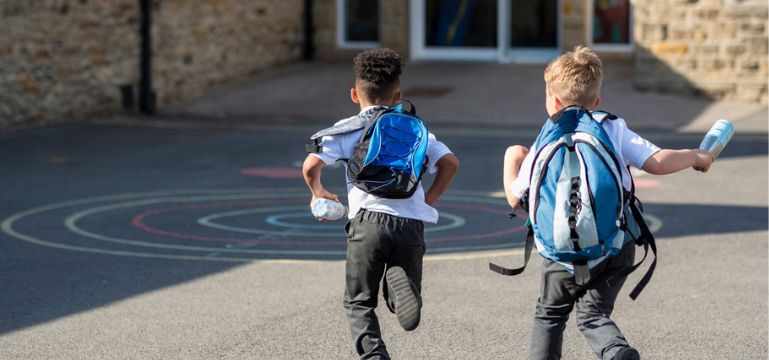Developing a rich curriculum and effective teaching that meets the needs of all learners and promotes strong attitudes to learning

Quick links:
Information about the school
Ysgol Caer Drewyn and Ysgol Carrog federated in 2012, and the headteacher shares her leadership time between both schools. Ysgol Caer Drewyn is a small county primary located in the rural town of Corwen. It provides education for 99 learners aged from three to eleven, across 4 classes. The rolling 3-year average FSM is 37% but the actual current percentage is 49%. Ysgol Carrog is a small county primary located in the rural village of Carrog. It provides education for 35 learners aged from three to eleven, across 2 classes. The rolling 3-year average FSM 11% but the actual current percentage is 30%.
On entry to the schools, many pupils’ basic skills are below what is expected for their age. During their time at the schools, nearly all pupils including those with additional learning needs make strong progress.
The federation has a clear vision, which focuses on ensuring a caring and nurturing environment where pupils have the best opportunities to learn. The strong values including kindness, curiosity and creativity; are clearly visible at both schools and form the basis of the strong and supportive relationships which exist in all classrooms. Developing strong attitudes to learning, respect for others and supporting pupils and staff’s well-being is at the heart of the federation’s vision and values.
Context and background to the effective or innovative practice
After considering the context in the schools’ work, they decided that the current more traditional style of teaching had not been effective enough and did not always meet the needs of pupils. Collectively the schools decided to adapt their approaches. Prior to Curriculum for Wales, they successfully adopted foundation learning pedagogy across key stage 2 classes and introduced cross-curricular challenges alongside stimulating and purposeful learning environments for all pupils. The introduction of CfW has since allowed them to be more flexible.
Description of nature of strategy or activity
Effective teaching and learning together with a rich, purposeful, diverse curriculum ensure that learners are interested in their learning and work well independently and with peers to complete their challenges. This helps to foster positive attitudes to learning and effective independent learning skills. Pupils receive purposeful opportunities to practice their literacy, numeracy and digital skills well through rich tasks and learning experiences; such as cooking lessons which are regularly used to practice these skills and promote healthy eating.
The provision for foundation learning is based on a broad range of rich learning and play activities that develops pupils’ independence and collaborative skills well.
Teachers plan a wide range of authentic learning experiences to develop their skills across the curriculum including effective use of the outdoor areas. Pupils contribute well to the planning of each term’s topics by suggesting what they want to learn. As a result, the independent learning experiences or ‘missions’ focus well on allowing pupils to apply their skills in engaging and challenging contexts. In addition, pupils select the activity at the level of challenge which they consider to be appropriate for them, which develops their independence successfully. Pupils also have an opportunity to plan and deliver their own lessons in line with the topic and give consideration to the skills to be applied.
Teachers adapt their teaching extremely well to meet the needs of all learners. They make skilful use of short, sharp and mostly practical activities that ensure that pupils remain active, engaged throughout the sessions and make good progress. Together, all staff set high expectations, making effective use of groupings and questioning to provide pupils with the necessary support to succeed and to challenge themselves effectively.
What impact has this work had on provision and learners’ standards?
The adaptation of this teaching style and curriculum has resulted in learners enhancing their confidence and independence, improving their attitudes to their learning and their inquiring responses. All staff have high expectations and aspirations for pupils to achieve the best that they can be and this enables them to transfer their skills successfully across the curriculum. Most pupils respond very well to different challenges, which allow them to collaborate with their peers and develop self-confidence.